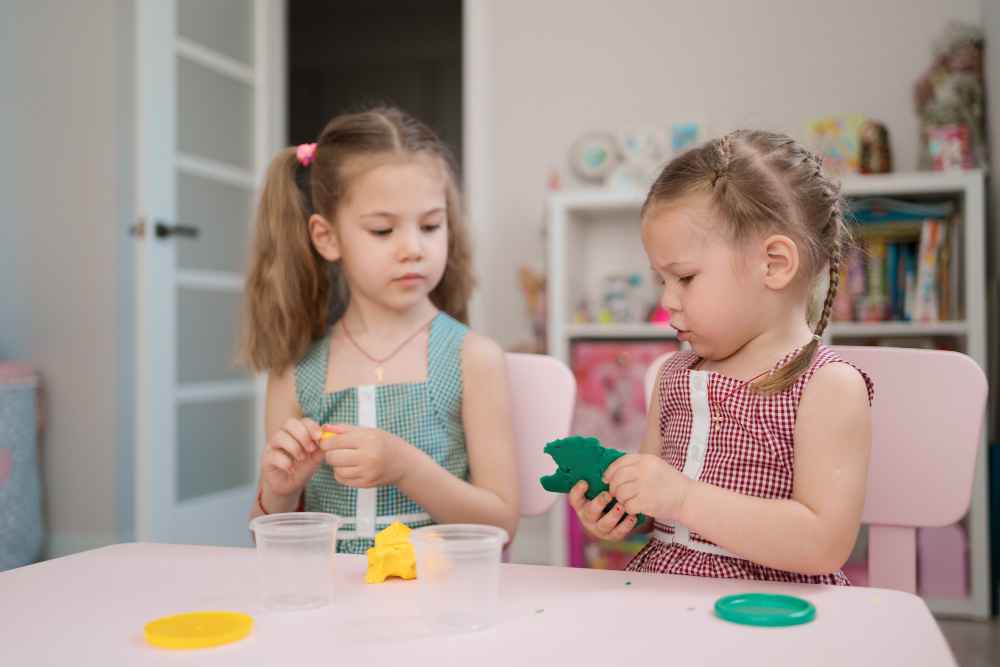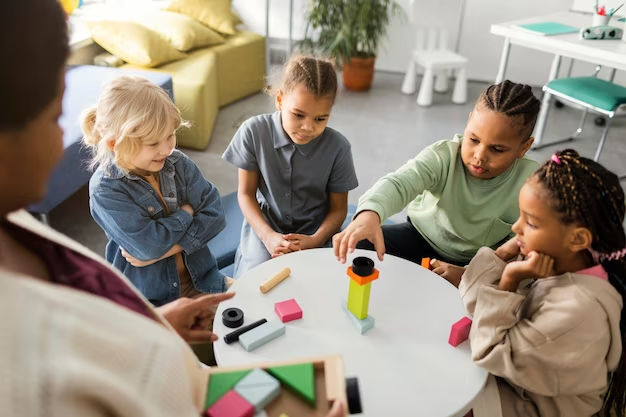
Preschools play a pivotal role in laying the foundation for a child's social and emotional development, and instilling a sense of civic responsibility is an essential aspect of this process. Cultivating an early awareness of community, empathy, and social responsibility contributes to the development of engaged and responsible citizens. This essay explores strategies through which preschools can foster a sense of civic responsibility in young children, nurturing qualities that will benefit both the individuals and the communities they become a part of.
Modeling Civic Responsibility through Teachers and Staff
Preschools serve as microcosms of society, and the adults within these environments have a profound impact on shaping children's values. Teachers and staff can model civic responsibility through their actions and interactions. By demonstrating kindness, empathy, and a commitment to community well-being, educators provide young children with tangible examples of civic responsibility in action.
Community Engagement and Service Learning Projects
Preschools can actively engage children in service learning projects that contribute to the local community. Whether it's organizing a food drive, planting trees, or creating art projects for local nursing homes, these activities teach children the importance of giving back and taking an active role in the welfare of others. Service projects not only benefit the community but also instill a sense of pride and accomplishment in young children.
Integrating Civic Themes into Curriculum
Preschools can incorporate civic responsibility themes into their curriculum, making it an integral part of the learning experience. Topics such as community helpers, sharing, and taking turns can be woven into daily activities. Reading books that highlight civic virtues, such as kindness, fairness, and responsibility, further reinforce these concepts in an age-appropriate manner.
Encouraging Inclusive Play and Collaboration
Promoting inclusive play and collaboration fosters a sense of civic responsibility among young children. Preschools can create an environment where children learn to appreciate diversity, respect each other's opinions, and work collaboratively towards common goals. These early experiences lay the groundwork for positive social interactions and a sense of responsibility towards the well-being of the larger community.
Celebrating Cultural Awareness and Diversity
Preschools should celebrate cultural awareness and diversity to instill a sense of civic responsibility. Learning about different cultures, traditions, and customs helps children develop an appreciation for diversity within their community. This understanding contributes to the development of empathy and a broader sense of social responsibility.
Teaching Conflict Resolution and Problem-Solving
Preschools can teach young children essential conflict resolution and problem-solving skills, which are crucial aspects of civic responsibility. By providing guidance on how to express emotions, listen to others, and find mutually agreeable solutions, preschools empower children to navigate social situations effectively and contribute positively to their community.
Creating a Classroom Constitution
Preschools can involve children in the creation of a classroom constitution, outlining shared values and expectations. This collaborative process encourages children to take ownership of their classroom community and instills a sense of responsibility towards maintaining a positive and respectful environment.
Family Involvement in Community Activities
Preschools should actively involve families in community activities to extend the concept of civic responsibility beyond the school setting. Organizing family volunteer opportunities, community clean-up events, or collaborative projects creates a sense of shared responsibility and reinforces the importance of contributing to the greater good.

Related : What Strategies Can Preschools Implement to Encourage Peer Collaboration and Teamwork?
Suggesting a Preschool: Fostering Civic Responsibility
When choosing a preschool for their child, parents should seek institutions that actively foster civic responsibility through a combination of modeling, community engagement, integrated curriculum, inclusive play, cultural awareness, conflict resolution teaching, creation of classroom constitutions, and family involvement in community activities. A preschool that prioritizes these strategies provides a foundation for cultivating responsible and engaged citizens.
Montessori Shir-Hashirim Los Angeles
Shir-Hashirim Montessori school has two different locations. The main location is on Carlton Way in Los Angeles. This school teaches children between the ages of 2 and 6 and prepares them for some of the top Montessori elementary schools in the city. Specifically, they offer a primary program and a summer program for preschool children.
At Shir-Hashirim, they allow their students to grow and learn both individually and within the community of the school. Students are able to learn at their own pace when it comes to both practical life skills and subjects such as math and language.
Shir-Hashirim Montessori has a parent-and-me program that is required for families who may enroll their child in the Montessori program.
Conclusion
In conclusion, preschools have a crucial role in fostering civic responsibility in young children. By modeling civic virtues, engaging in service learning projects, integrating civic themes into the curriculum, encouraging inclusive play, celebrating diversity, teaching conflict resolution, creating classroom constitutions, and involving families in community activities, preschools contribute to the development of responsible and socially conscious individuals. The values instilled during these formative years set the stage for a lifetime of active participation in community and civic life.

